Editor’s Note: This story was originally published in the Heat Issue of Life & Thyme’s print magazine.
Our day with Rodrigo Machaz begins with a strong espresso on a sun-soaked terrace jutting out over the pastel maze of Lisbon’s old town, and ends with a shot of sweet Ginjinha at a rose-colored kiosk in Principe Real—the newly gentrified neighborhood where his next hotel will reside. Our first and last impressions of him are much the same—a generous, electrified soul, who exudes eternal youth and playful energy. He darts from place to place, talking with the rapid vigor of a young boy, with the wisdom and intellect of a worldly businessman. Our short time in Lisbon has taught us to expect this kind of mischievous charm from its locals. It lives within them.
Machaz launched his hotel, Memmo Baleeira, in Sagres, a fishing village in the Southern Algarve of Portugal. “It is wild and beautiful there,” he tells us. “It is pure nature.” Lisbon-born Machaz moved to this dramatic coastline to be near his first love, the ocean. It was there that he began renovating a hotel from the 1960s; it looked out over the choppy Atlantic. “I’ve always sailed and surfed. I grew up very connected with the water,” he says. “I always had this dream to live near the sea, and to see my children surfing. I knew the project had to begin there.”
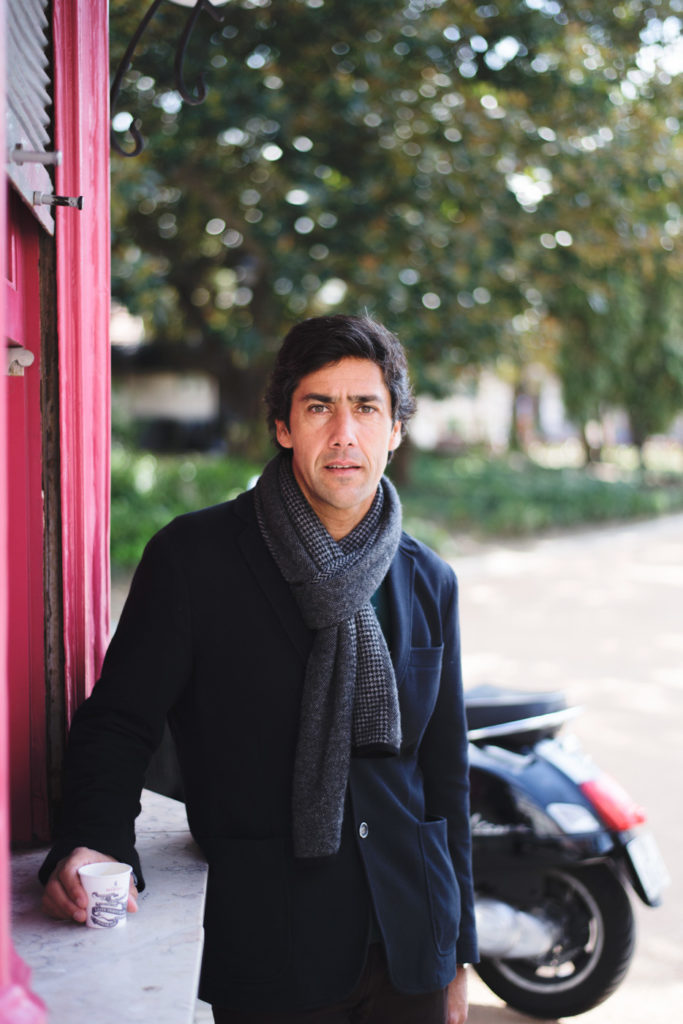
He opened Memmo Baleeira with one wish: for guests to understand the untamed beauty of the landscape with him. Guests are offered trekking tours, running itineraries, diving excursions, sunset yoga, and a surfing school. “Integrating guests with the local community is very important to me,” Machaz says. He now not only sees his sons surfing alongside him, but his guests too.
“I wanted the hotel to be the doorway to exploring the area,” he tells us. “For me, it’s about simplicity. It’s about having a beer at sunset, or a barbecue on the beach. Of course, at the end of the day you want your Internet connection and your comfortable bed, but it is about travel, not tourism. We want to see people melt into the local community. They want to visit unexpected places, with a little guidance, not a schedule. That is the way I like to travel.” Of course, the four-star hotel is luxurious. But the luxury comes hand in hand with an authentic experience; it’s a true snapshot of a destination. This has been Machaz’s undertaking for the last decade.
We meet the man behind Memmo (“memory”) on the deck of his second hotel, located in Lisbon’s old town of Alfama. The hotel, a small, gleaming cube on the tip of the hill, looks over the inclining patchwork of old houses, domes, washing lines and sloping cobbled steps of Lisbon’s oldest district. The area seems frozen, beautifully, in time. And Machaz wants to keep it that way. “The challenge is retaining authenticity while encouraging tourism,” he says, sipping a jet-black espresso. “How do you do that? You create a community of people who care about the area. Who understand it for what it is.”
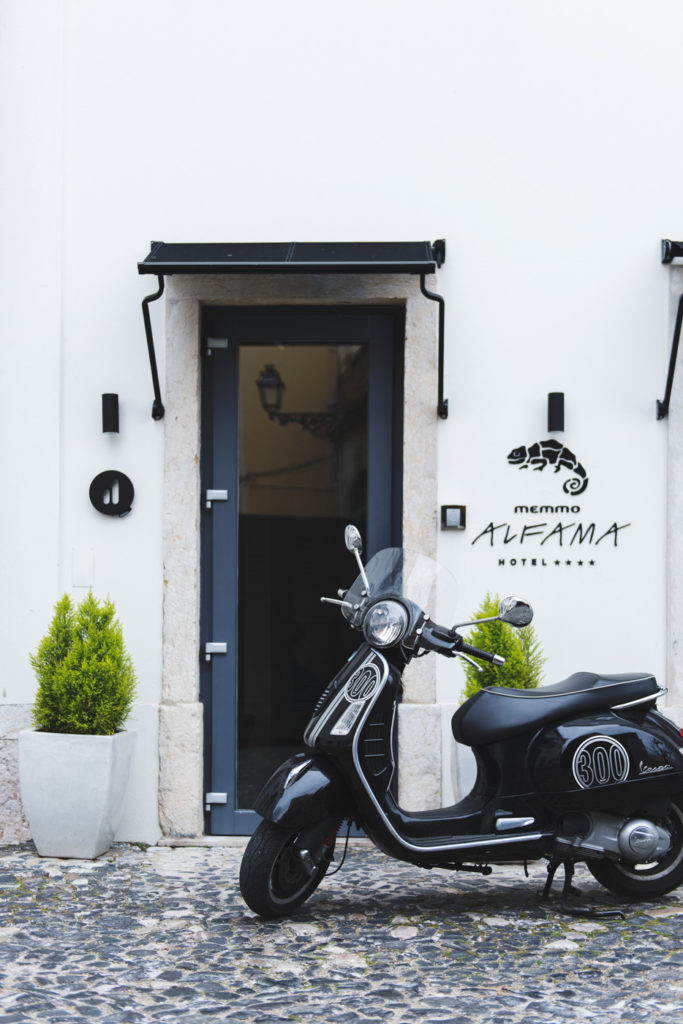
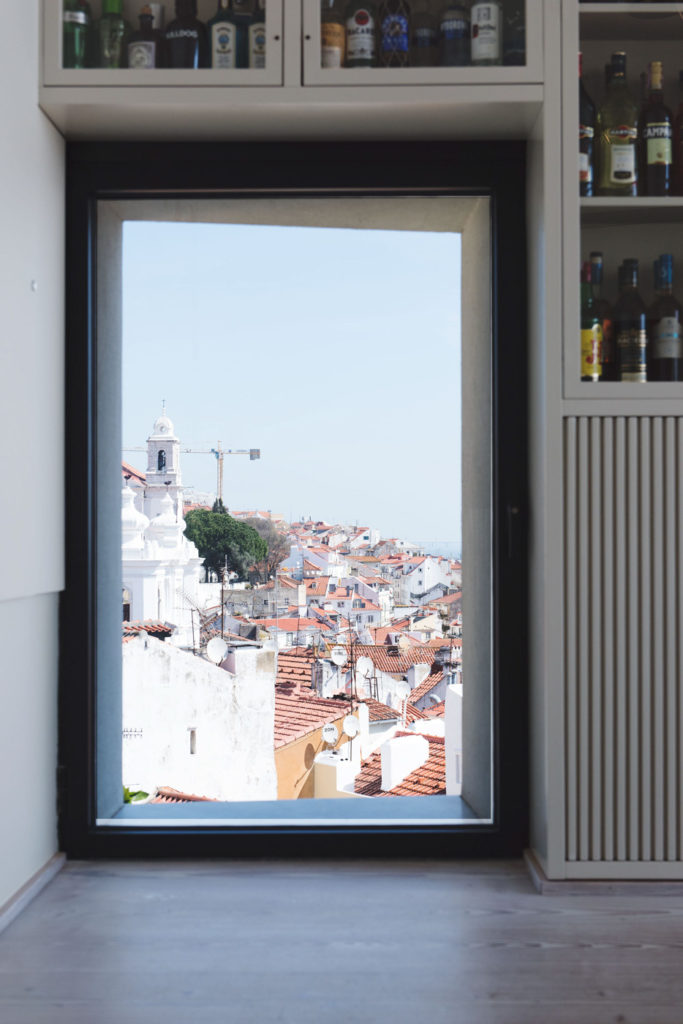
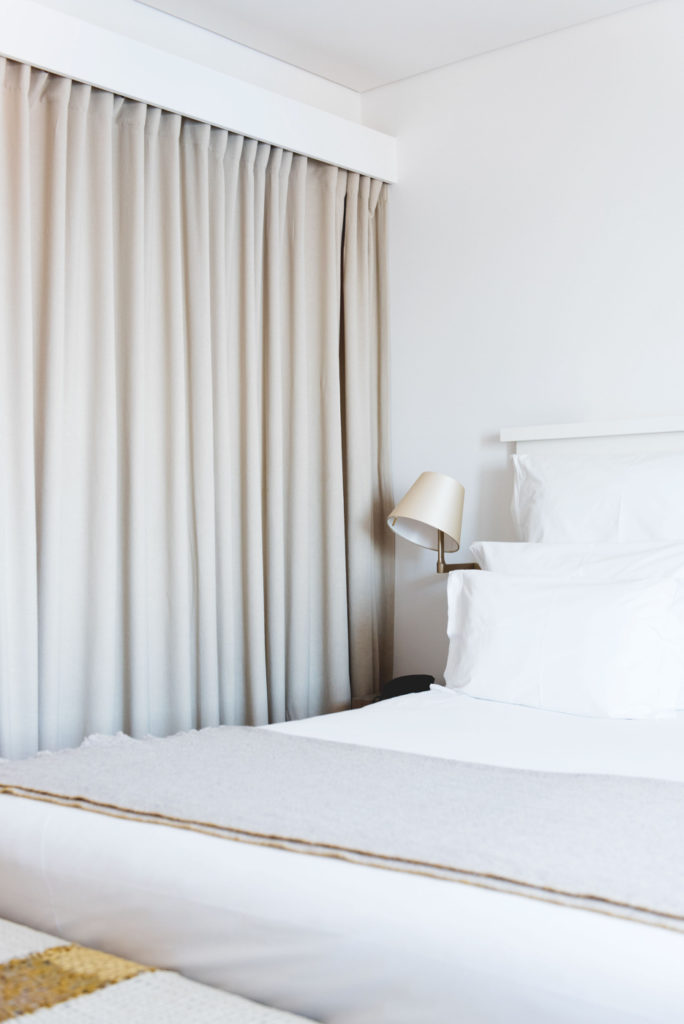
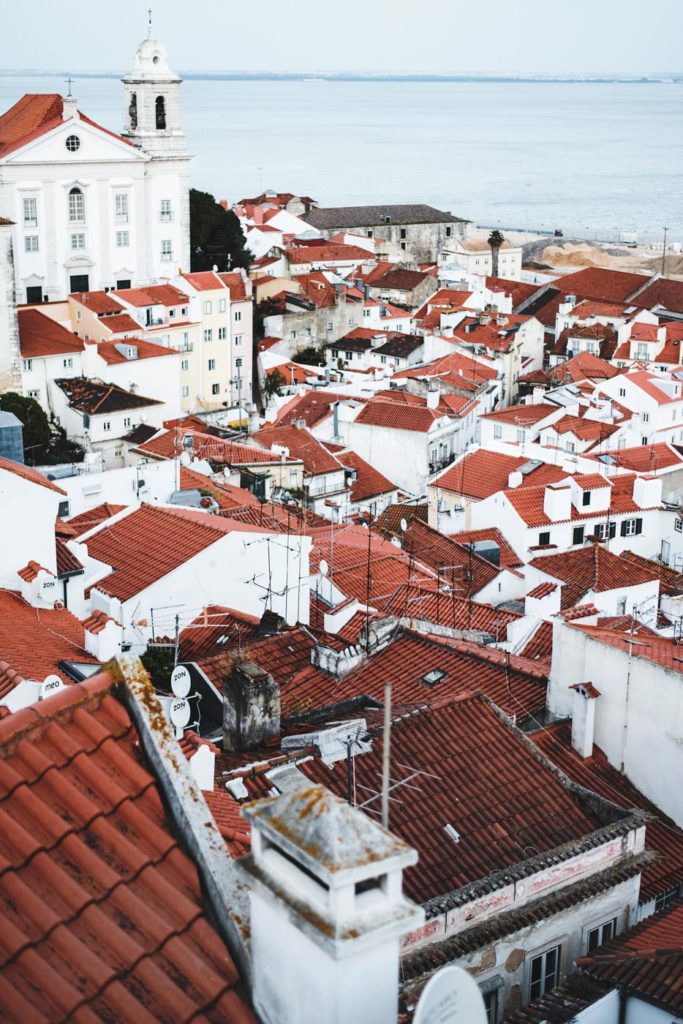
With just 42 rooms set inside a former shoe polish factory, Machaz brings guests together in the intimate communal dining room. He leaves a notepad and pencil in each room to encourage visitors to post their fondest memories of Lisbon on the board in the reception. He orchestrates wine evenings on the deck, inviting guests to become friends.
His walking tours twist and turn through Alfama’s ancient streets. “I used to say I was the only general manager who wanted to see everyone outside the hotel,” Machaz laughs. “Because it meant that guests were out exploring. Of course, you miss out on revenue that way. But on the other hand, they are gaining an understanding of the region. They are falling in love with it. What more could you want for your guests?”
I ask about his next project, another Memmo hotel in Lisbon. He jumps up and excitedly leads me through the hotel’s wood-clad entrance hall to the exit, where his beloved Vespa leans against the wall like a patient friend. And speaking of the wall outside the hotel, it seems no coincidence that the building’s entrance sits beside a mural by the street artist Vihls. It is a huge portrait of a former resident, rendered in stone. It is not immediately clear, but as you approach the wall, the watchful eyes and slanted expression come into light. It is like Memmo Alfama itself—unassuming, delicate, enduring, in awe of a Lisbon that once was.
Machaz’s city is changing fast. For all of its delightfully dilapidated charm—sun faded houses, a rainbow of tiled facades, Art Deco cinemas, threads of linen drying between windows, whining, butter colored trams—it is beginning to assert itself as an influential capital city.The city is beginning to shine again. Poor neighborhoods have seen a sudden influx of young creatives, turning neglected buildings into concept stores and art venues. Among the seven hills, which glimmer with the reds, pinks, yellows and whites of buildings covered by terracotta roofs, Lisbon’s new breed of creatives are changing the pace of the city.
Principe Real is a good example. The district juts out of Barrio Alto, Lisbon’s famous party zone. Awash with regal houses and former palaces, it is a neighborhood that could easily have slipped into the wrong hands in the wake of Portugal’s devastating financial crisis, becoming unaffordable and closed off from independent businesses. But back in 2005, Washington-based real estate company Eastbanc began buying up the disused properties sprawled across the area. They quickly flung open the doors of these grand houses, four of which were 19th Century palaces, and invited young creatives to set up shop on their lower floors at marvelously reasonable prices. For Machaz, the new wave of ingenuity blossoming across Lisbon would have been impossible without the calamity. “Crises are very inspiring times. New things grow from them,” he says.
“People are doing their own thing now. When there is a crisis, people come out of their comfort zone. Because they don’t have work and they need to do something new. Suddenly they’re doing the thing they have always wanted to do, and it’s working!” The result is the Principe Real we see today, scuttling behind Machaz as he paces past the water’s edge into the heart of the district. “You’re going to love it here!” he exclaims, leading us down Praca do Principe Real, lined with colorful concept stores, bare-bulbed pizzerias and breezy ceviche bars, with a couple of weathered pastelerias—or pastry shops—still buzzing away on the street corners. “There is so much change in the air!” he calls. “It’s a revolution. You just want to be there with your flag!”
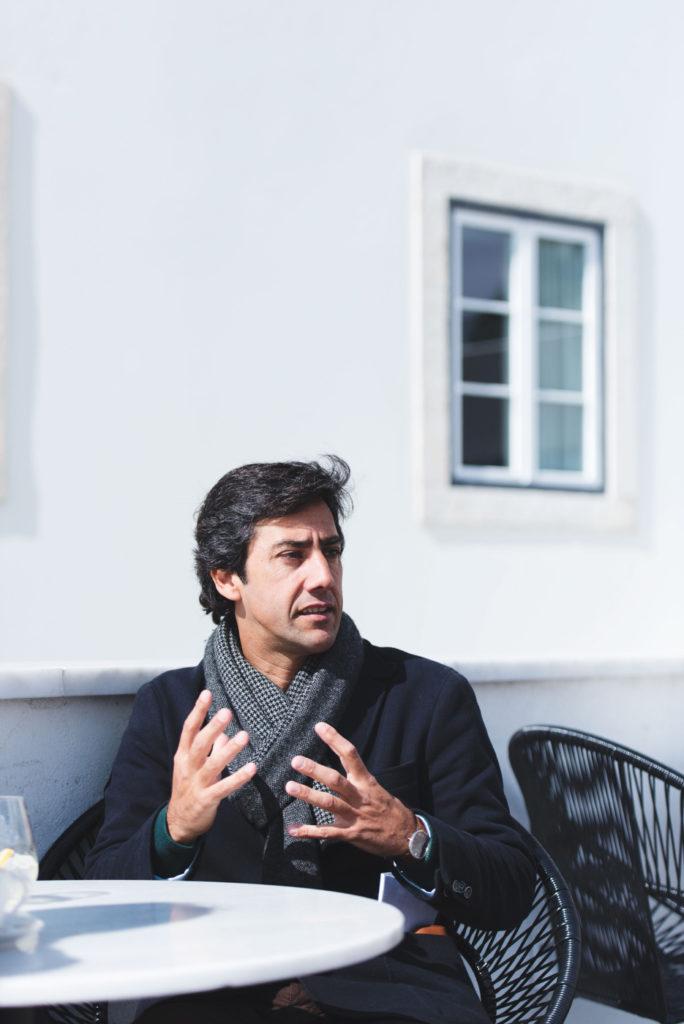
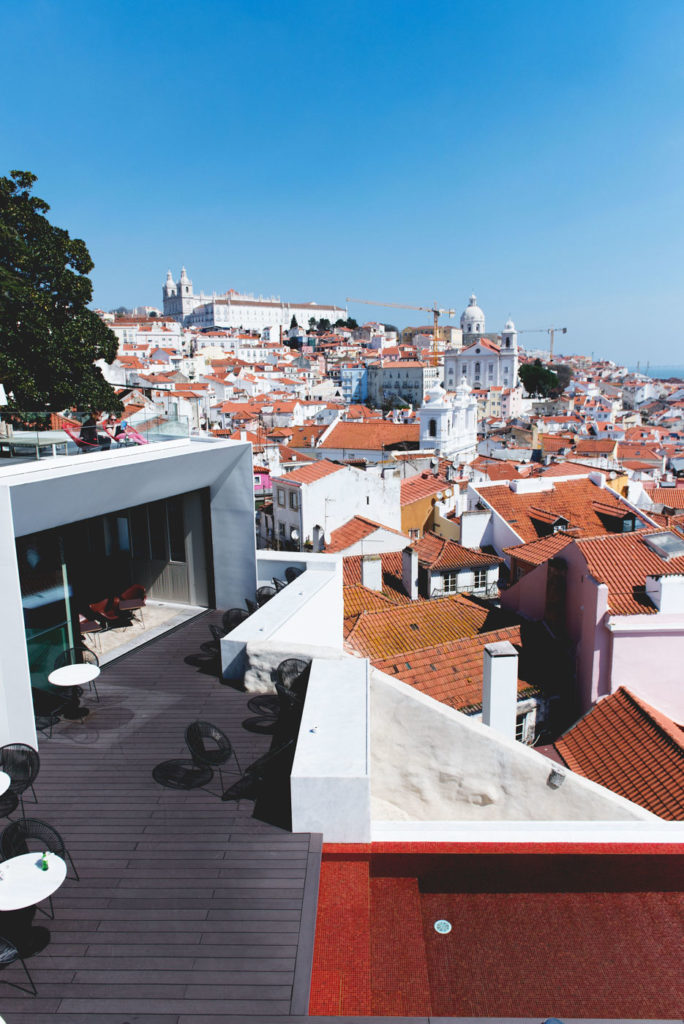
We pass by a shop selling vinyl and handmade trainers. Not far from that, the crowd-funded Le Moustache Smokery sells everything from 16-hour dried steak and homemade sausages to smoked desserts. Up and down the streets, owners lean against their shop fronts, which are decorated with crumbling, geometric patterned tiles in cream, beige and sky blue. It is difficult to say what makes a place feel bohemian. Sometimes it’s the buildings that make up a place. Others, the intriguing mix of people that fill it. Often it’s the food and drink within it. Or simply just an atmosphere of freedom and excitement. In the case of Principe Real, it’s the combination of all these.
Machaz is part of a growing community of Lisbonites who want to lead their city forward into the future, whilst preserving the beauty of its past. And there is no industry treading this line more than food. Lisbon is a haven of local produce. Seafood restaurants brim with fat, pearly oysters, candy-pink shrimp, bubbling cauldrons of garlicky clams, salt-baked cod, plump lobsters plucked straight from the tank. Custard tarts (pastel de nata) have achieved cult status in places like Pastéis de Belem, who have been piping their secret-recipe, sweet, creamy custard into crumbly pastries since 1837. Cheap bottles of wine flow like water, and bitter espressos litter the days for locals.
But as a newfound creativity surges through Lisbon in tangible waves, the food scene is being reimagined as well. “More and more good restaurants are popping up in Lisbon. But the most important change here has been a growing interest in local produce,” Machaz says, leading us toward Esplanada do Principe Real, the handsome park where the weekly organic food market takes place. “It is not about importing concepts, but using what we already have. We are seeing the value of local food. Rather than going with trends, people are interested in typical food being presented in new ways,” he says. “Food is being taken from the very humble areas and explored in fine restaurants. It is cultural heritage.”
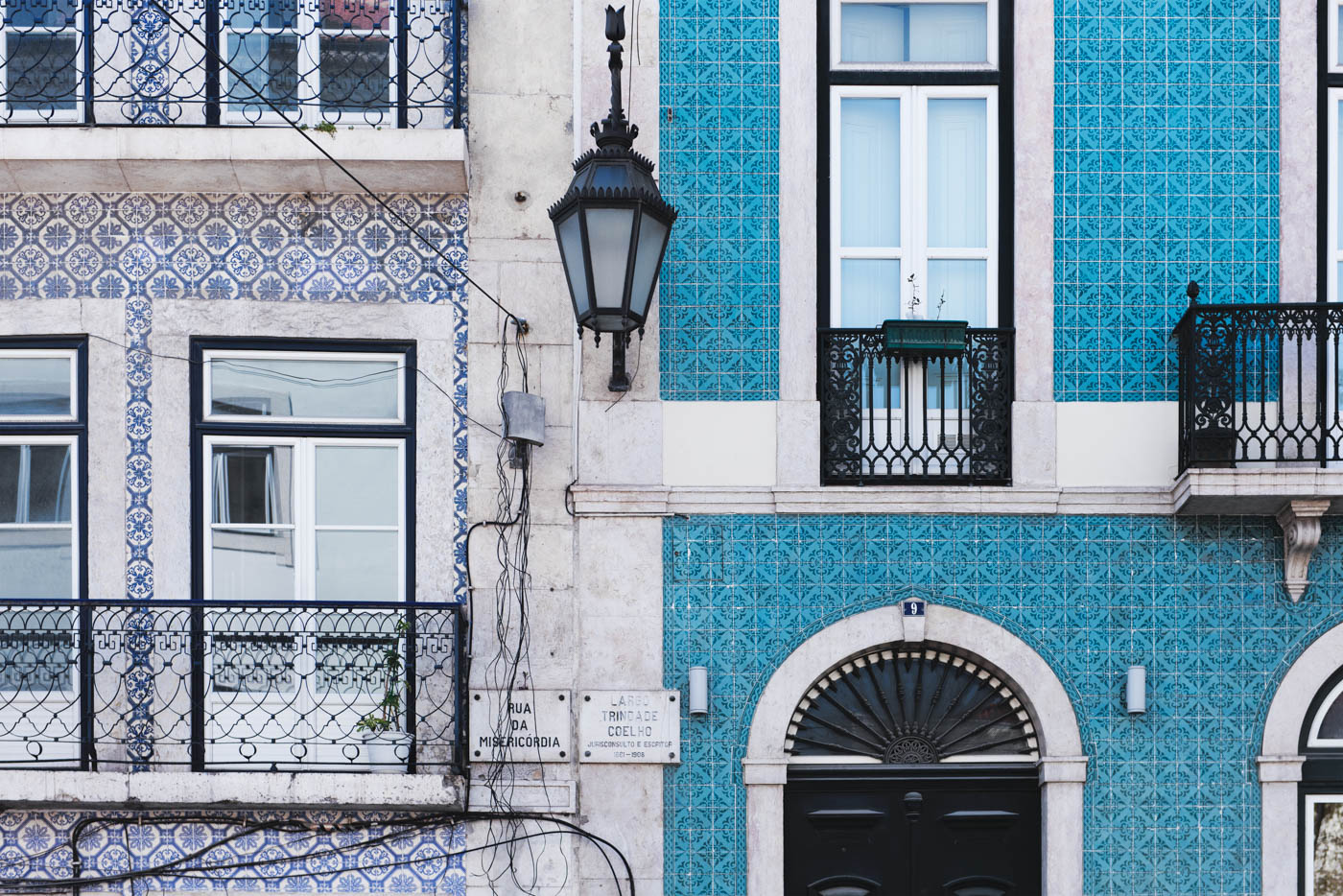
Skimming through narrow blocks of rubble, he steers us to the site of his new hotel, Memmo Principe Real. Standing in the hanging wires and dusty air of the unfinished construction, he sketches out his plans for the hotel. Among them is a new restaurant, Café Colonial. It will tell the tale of Portugal’s past, tracing the cuisines of its empires. “There has been a big movement in sharing food in Lisbon lately,” Machaz explains, striding across the empty rectangle that will soon be the restaurant.
“I think it says a lot. In the past, you would go to a restaurant and have your own plate, and you’d share a bottle of wine. Now, you have your own drink and you share your food. It’s because it is not all about food,” he continues. “Restaurants today are about the experience of interaction. Good food is important, but it is not only about what happens on the table, but about what happens around the table.”
The young but already reputable chef, Vasco Lello, will head the kitchen. And, crucially for Machaz, the restaurant will have its own entrance. “I hate the thought of visitors coming in through a hotel lobby,” he explains. “We want to showcase everything that is good about Portuguese cuisine, and the food that came out of those Portuguese communities around the world. This has to be a neighborhood restaurant, where locals come through the door to eat local food. This restaurant is for Lisbon.”
Of course, Machaz is keen to show me all he has been working on over the last few years—his hotels, his powerful business model, his adoring guests. But more than anything, he is eager to show me other people’s work. He takes me to see The Independente Collective, an artful hostel with a stylish bar and two Alice in Wonderland-esque restaurants set inside the majestic building that once housed the Socialist Federation. He introduces me to the owner, prompting him to tell me everything about the project—the magnificent food, the craft cocktails. He takes me to an old bakery, which serves his favorite pastel de nata. He shows me Embaixada, a former palace with independent boutiques connected beneath frosted glass roofs and ethereal frescoes. He smacks friends lovingly on the backs, and waves at every shop owner as we passed by.
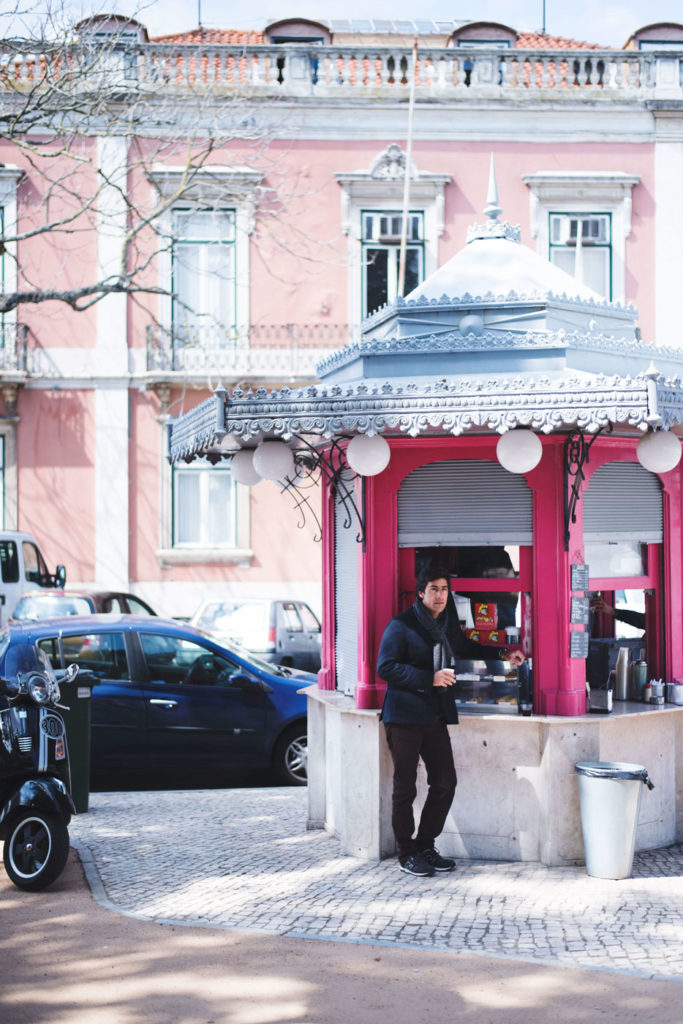
He rounds off our afternoon by introducing me to one of Lisbon’s most treasured traditions—the kiosk. All day and deep into the night, locals can be seen buying wine, beer and pastries from these brightly painted huts, and spilling out onto the chairs that surround them. Machaz grabs a couple of glasses of Ginjinha, Portugal’s iconic liqueur. He sips it slowly in the sun, pointing out new businesses and old friends. He is connected to Lisbon in every way. He is, at once, in love with the weathered beauty of Lisbon’s past and thrilled by the promise of its future. “Of course, I miss Sagres and being by the coast. It was the best time of my life,” he finishes. “But Lisbon is changing and I want to be part of it. It is my city, and I’m not going to miss it.”








Our comments section is for members only.
Join today to gain exclusive access.